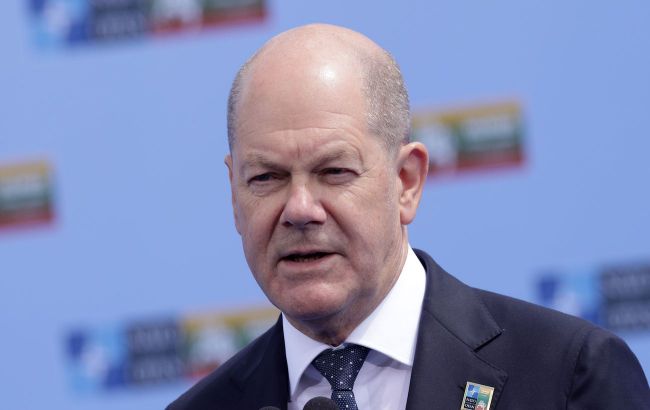Berlin aims to boost defense spending to include military mobility - Politico
 Photo: German Chancellor Olaf Scholz (getty images)
Photo: German Chancellor Olaf Scholz (getty images)
The cash-strapped German government is considering how to include funding for transportation infrastructure used by the military in its defense spending to meet NATO spending targets, Politico reports.
After Russia attacked Ukraine in 2022, the German government created a special fund of 100 billion euros to modernize the Bundeswehr, helping it meet NATO's spending target of 2 percent of GDP this year.
However, the draft budget for 2025 does not allow for this level to be maintained. Instead of the €6.5 billion increase requested by Defense Minister Boris Pistorius, the draft budget proposes a €1.2 billion increase.
With the €100 billion fund now largely allocated, it is unclear how Germany will fulfill its promise to keep spending above the 2% threshold in the future, especially after 2027, Politico writes.
A senior German government official told the publication that Berlin is considering including spending on military mobility. This could include spending on strengthening roads and railways needed to transport troops across the country.
In addition to the annual defense budget, Berlin also includes some general defense spending that is sent to NATO and some spending from other departments. These include the Foreign Ministry, the Chancellery, and the Finance Ministry, but the total amount is classified, a government spokesperson says.
Military mobility costs defense expenditures
NATO has strict rules on which costs meet its definition of defense expenditures and states: "Expenditure for the military component of mixed civilian-military activities is included, but only when the military component can be specifically accounted for or estimated"
Military mobility has long been a headache for defense planners, especially in Germany, prompting the European Union to create a money bag in its current long-term budget to fund schemes that have a clear defense application.
Camille Grand, former Assistant Secretary General of NATO, said that while NATO's calculations exclude most mobility costs, NATO's Security Investment Program covers some infrastructure needs, such as modernizing an air base or building a warehouse.
"Ultimately allies can decide to put money on many things as long as they agree,” Grand said. “In practice, the bulk of the military mobility effort will fall on the EU and [the European Commission's transport department] DG MOVE which has started investing (modestly) in military mobility requirements under the current [multiannual financial framework] MFF," Grand says.
Germany's cabinet plans to approve the 2025 budget after months of debate, hoping that a strong economic recovery will help it close the €17 billion gap between projected spending and revenues.
German Finance Minister Christian Lindner said that Germany should not increase defense spending, as Berlin is currently meeting its NATO target.

